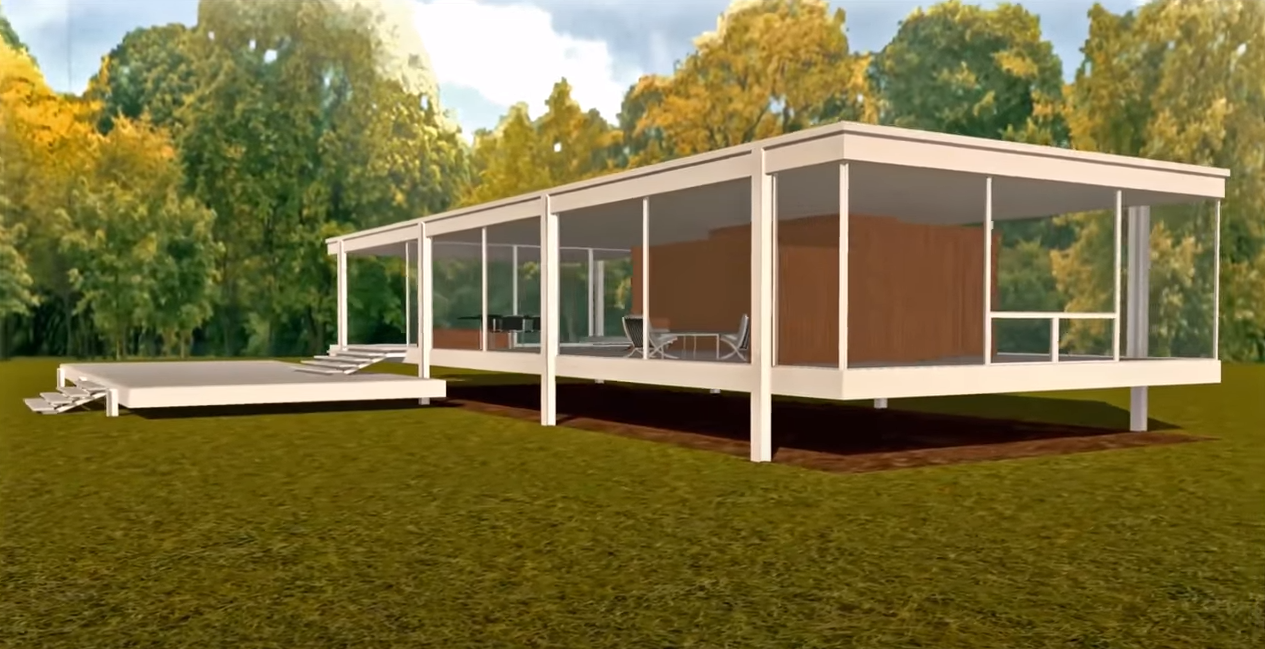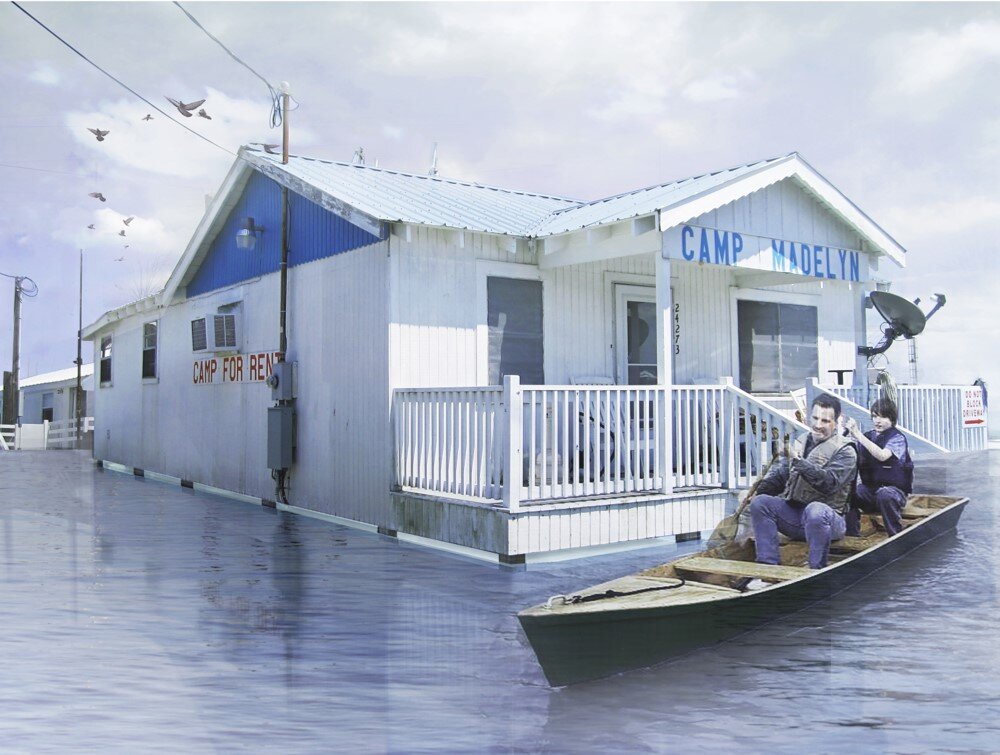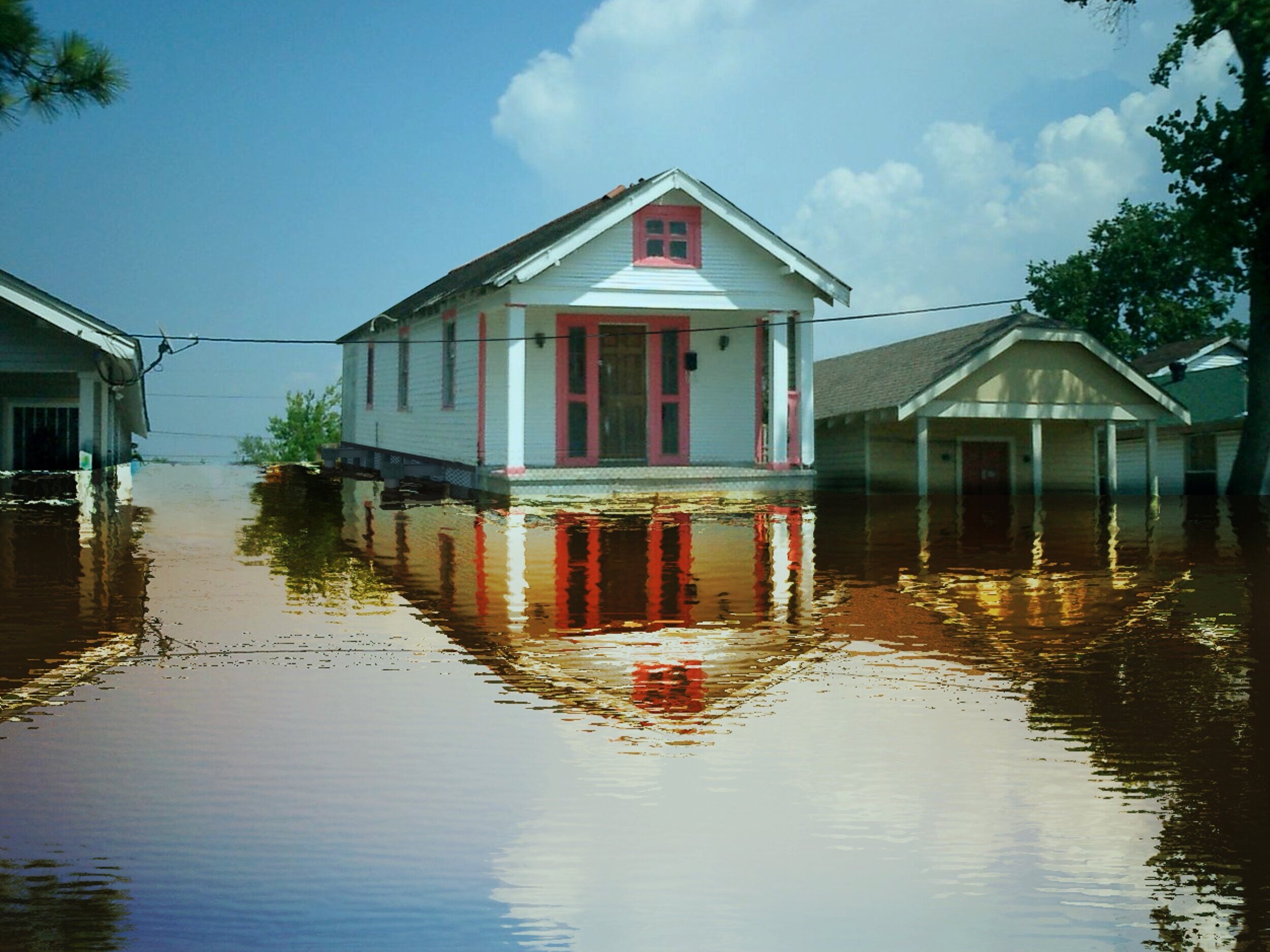FEATURED
The Economic Argument for Amphibious Retrofit Construction
Paper Presented at the 8th International Conference on Building Resilience (2018)
Thriving with Water: Developments in Amphibious Architecture in North America
FLOODrisk 2016, 3rd European Conference on Flood Risk Management, Lyon, France. October 18-20, 2016.
Buoyant Foundation Retrofit of the Farnsworth House Project
The following is the animation that shows a refined system that would be used to retrofit the Farnsworth House by Ludwig Mies van der Rohe.
PAPERS
Development of Amphibious Homes for Marginalized and Vulnerable Populations in Vietnam
Final Report – Executive Summary, July 2020
Elizabeth C. English, Lee Chan, Brent Doberstein, & Teresa Tran
Building Resilience through Flood Risk Reduction: The Benefits of Amphibious Foundation Retrofits to Heritage Structures
International Journal of Architectural Heritage, 1558-3066, (2019)
Elizabeth C. English, Meiyi Chen, Rebecca Zarins, Poorna Patange, Jeana C. Wiser
The Economic Argument for Amphibious Retrofit Construction
Paper Presented at the 8th International Conference on Building Resilience (2018)
Publication pending in the International Journal of Disaster Resilience of the Built Environment
Elizabeth C. English, Michelle Li, Rebecca Zarins, Tobias Feltham
An innovative strategy to increase the resilience of flood-vulnerable communities while reducing risk of population displacement and psychological trauma
Paper Presented at the 8th International Conference on Building Resilience (2018)
Elizabeth C. English, Meiyi Chen, Rebecca Zarins, Iryna Humenyuk
Combined Flood and Wind Mitigation for Hurricane Damage Prevention: Case for Amphibious Construction
Journal of Structural Engineering, 143 (6), 2017.
Elizabeth C. English, Carol J. Friedland, Fatemeh Orooji
Thriving with Water: Developments in Amphibious Architecture in North America
FLOODrisk 2016, 3rd European Conference on Flood Risk Management, Lyon, France. October 18-20, 2016.
Elizabeth English, Natasha Klink, Scott Turner
Mitigating Wind and Flood: The Increased Wind Vulnerability of Static Elevation vs. Amphibious Retrofit
Proceedings of the 8th International Conference on Bluff Body Aerodynamics and Applications (BBAA VIII), Boston, Massachusetts. June 7-10, 2016.
Elizabeth C. English, Fatemeh Orooji, Carol J. Friedland
A Loss Avoidance Study of Amphibious Housing
Proceedings of the First International Conference on Amphibious Architecture, Design and Engineering (ICAADE 2015), Bangkok, Thailand, August 26-29, 2015; 266-275.
Snehanjali Sumanth, Elizabeth English
Amphibiating Prefabricated Housing
Proceedings of the First International Conference on Amphibious Architecture, Design and Engineering (ICAADE 2015), Bangkok, Thailand, August 26-29, 2015; 285-293.
Lia Tramontini, Elizabeth English
Amphibious Housing for Vulnerable Communities in Jamaica
Proceedings of the First International Conference on Amphibious Architecture, Design and Engineering (ICAADE 2015), Bangkok, Thailand, August 26-29, 2015; 294-306.
Scott Turner, Elizabeth English
Amphibious Housing: An Innovative Approach to Seasonal Flood Mitigation for Vulnerable First Nations Communities
Proceedings of the First International Conference on Amphibious Architecture, Design and Engineering (ICAADE 2015), Bangkok, Thailand, August 26-29, 2015; 245-256.
Zachary Ropel-Morski, Scott Turner, Elizabeth English
A New Approach to Combined Flood and Wind Mitigation for Hurricane Damage Prevention
Proceedings of the 14th International Conference on Wind Engineering (ICWE), Porto Alegre, Brazil. June 2015.
Elizabeth English, Carol Friedland, Fatemeh Orooji, Nashin Mahtani
Amphibious Foundations and the Buoyant Foundation Project: Innovative Strategies for Flood-Resilient Housing
International Conference on Urban Flood Management, UNESCO-IHP and COST Action C22, Paris, France. 25 – 27 November 2009
Elizabeth English
ARTICLES
Float When it Floods: Amphibious Architecture as an Alternative Flood Risk Reduction Strategy
HazNet (Newsletter of the Canadian Risk and Hazards Network), vol. 12 no. 1 (2019)
Michelle Castro Bullough, Shabaan Khokhar, Elizabeth English
Amphibious Architecture: An Innovative Strategy for Flood Resilient Housing
HazNet (Newsletter of the Canadian Risk and Hazards Network), vol. 6 no. 1 (2014)
Elizabeth English
THESES
WaterWoven: Living on the margins in the Roncador River region
2022
Maria Ottoni
Informal settlements located on river edges in impoverished Brazilian urban peripheries have increasingly suffered from the effects of more intense urban floods. In the context of a degraded urban watershed, precariously inhabited by informal settlements, how can we promote a transformation toward a more sustainable way of living? How can we rehabilitate the river while also enhancing the community capacity to adapt to floods and improve their lives on a long-term basis? The Aquatecture approach, as a non-defensive nature-based solution, has great potential to restore the river’s environmental qualities, reduce floods and allow the city to work with water instead of controlling it.
Where the River Flows Fast
2011
Andrea Barei
Composed as a series of explorations into the physical and spiritual form of the flood prone First Nations community of Kashechewan, this thesis explores the factors that have contributed to the community’s decline and current state. By looking at how these factors influence built form, the principles, possibilities, and concepts that are latent within it are used to re-establish ways in which the people can view, value, and act upon the land to create lasting change.
The Lift House
2011
Prithula Prosun
Bangladesh is known for two things: poverty and floods. The LIFT (Low Income Flood-proof Technology) House is an affordable, flood-resilient housing solution for the low income families of Dhaka. The LIFT house consists of two amphibious structures that are capable of adapting to rising water levels. The amphibious structures float up on buoyant foundations during floods, and return to ground level when water recedes. It is a sustainable, environmentally friendly house that provides all basic services to its residents without connection to the city service systems, through the use of indigenous materials and local skills.
Amphibious Architectures Part One
Amphibious Architectures Part Two
2010
Elizabeth Fenuta
This is a research-based thesis builds upon a study conducted with Dr. Elizabeth English on the Buoyant Foundation Project (BFP). The BFP is currently developing an amphibious foundation system to retrofit vernacular wooden ‘shotgun’ houses in the Lower Ninth Ward in New Orleans. The BFP system will allow homes to float when flooding occurs, rising and descending vertically to avoid flood damage. It provides an alternative solution to permanent static elevation, the mitigation strategy currently recommended by the United States federal government.
POSTERS
Advances in amphibious retrofit construction for flood risk reduction and climate change adaptation
State of the Coast Conference 2023
Elizabeth English, Buoyant Foundation Project Team
Water is Our Friend: Flood-Resilient and Climate-Adaptive Housing for Indigenous Communities in Canada
Turtle Island Indigenous Science Conference 2022
Elizabeth English, Laurie Pearce, Brent Doberstein









































